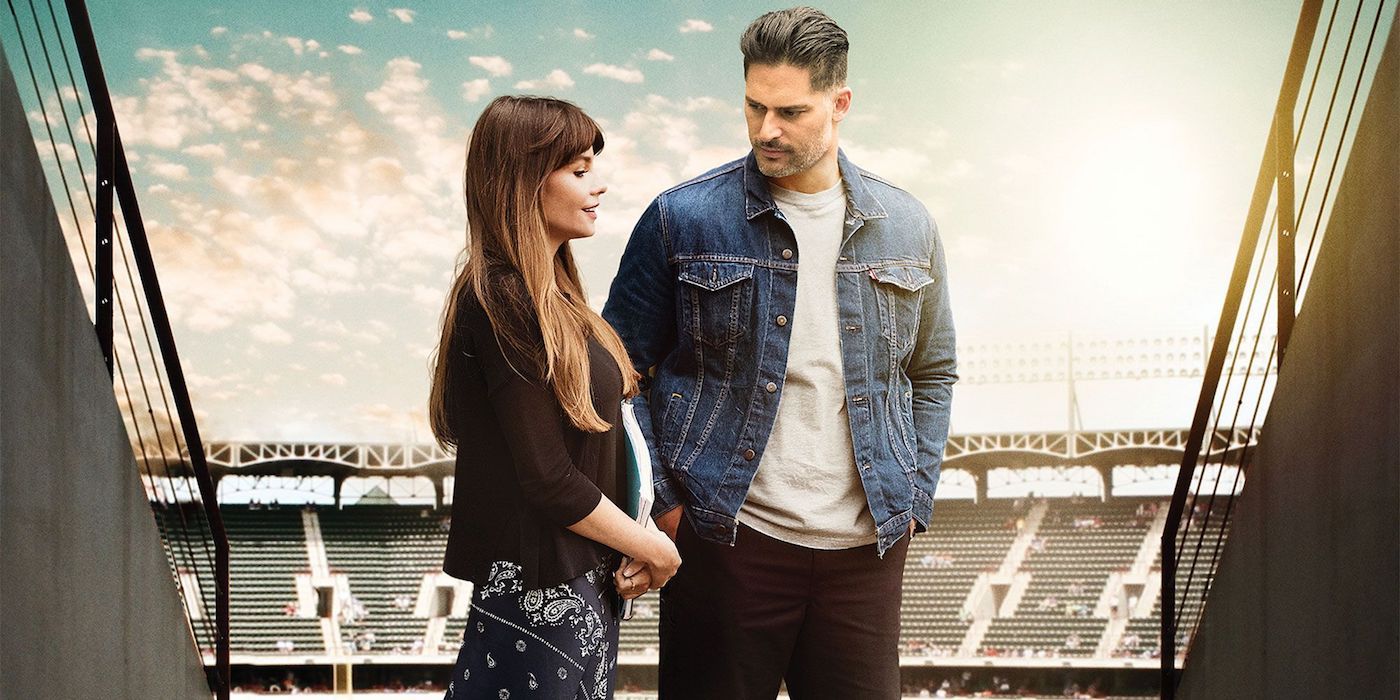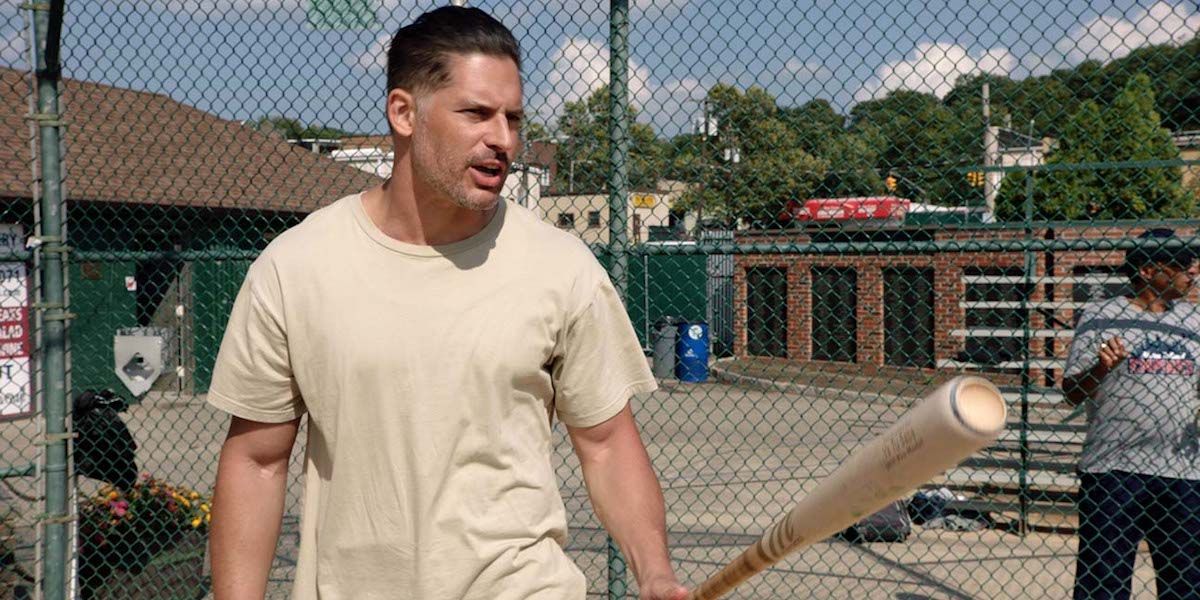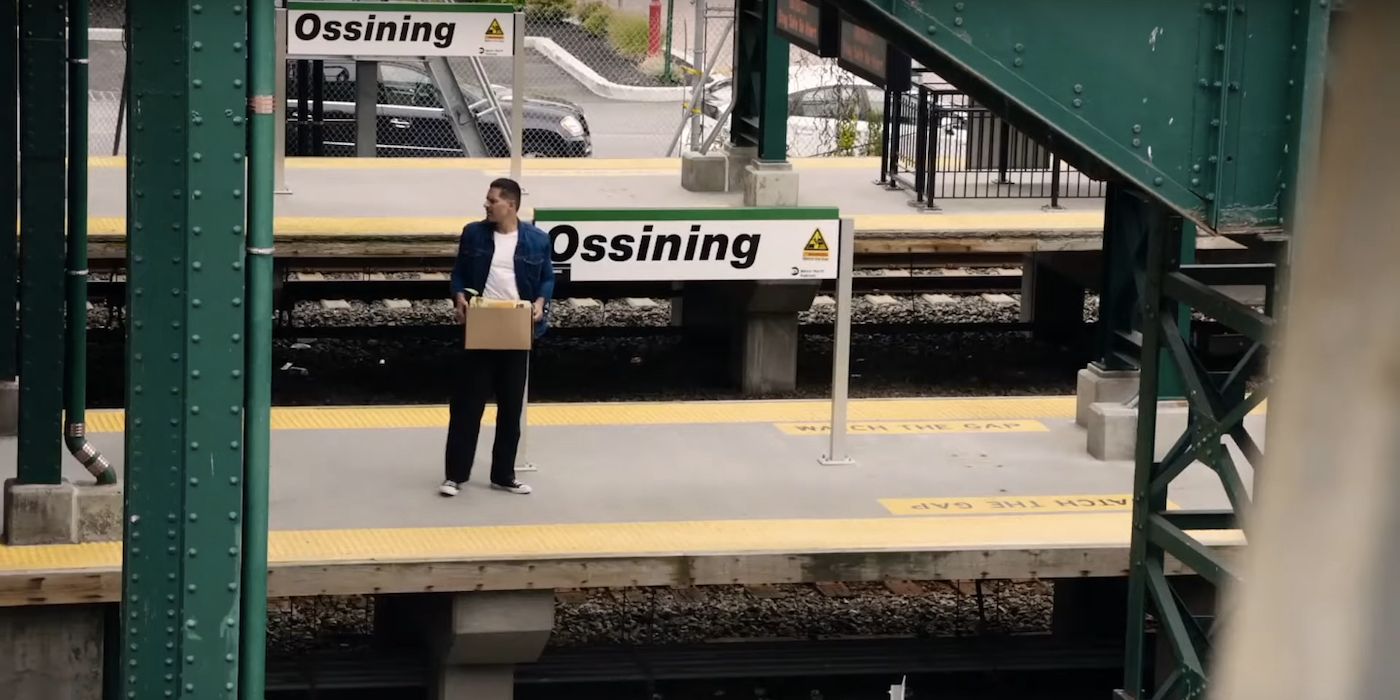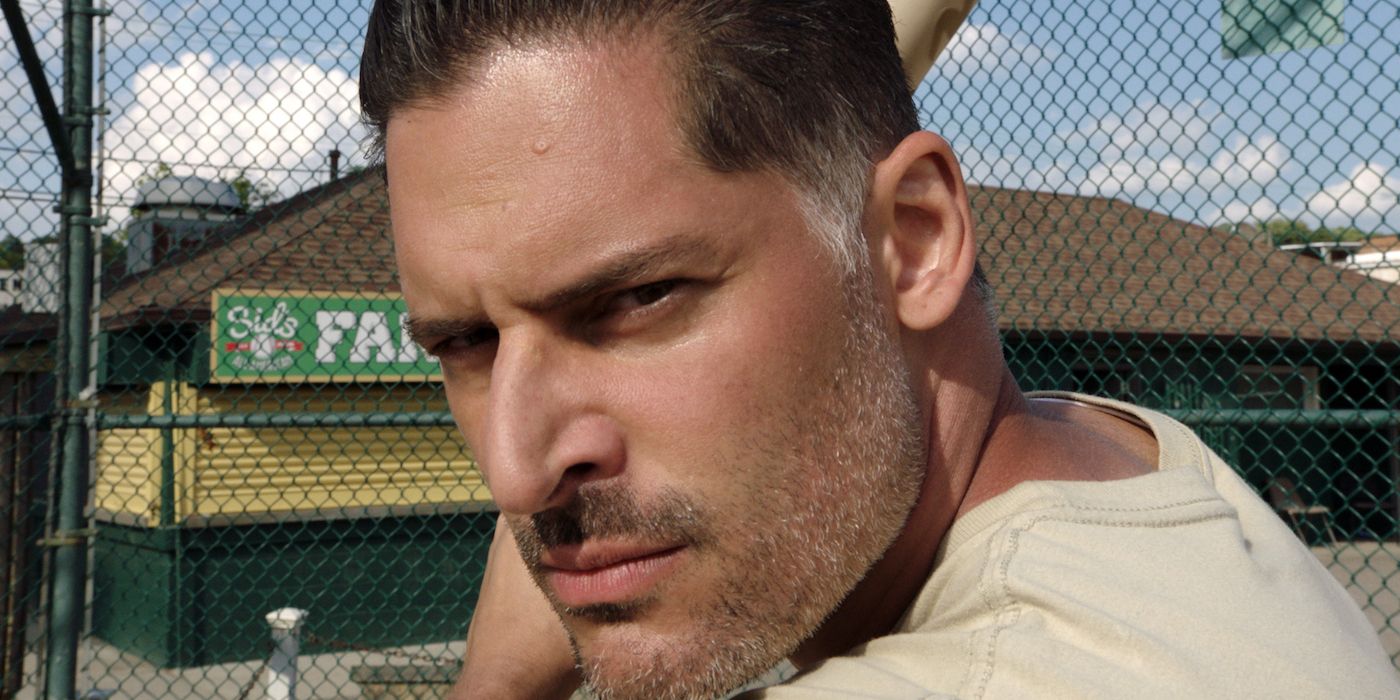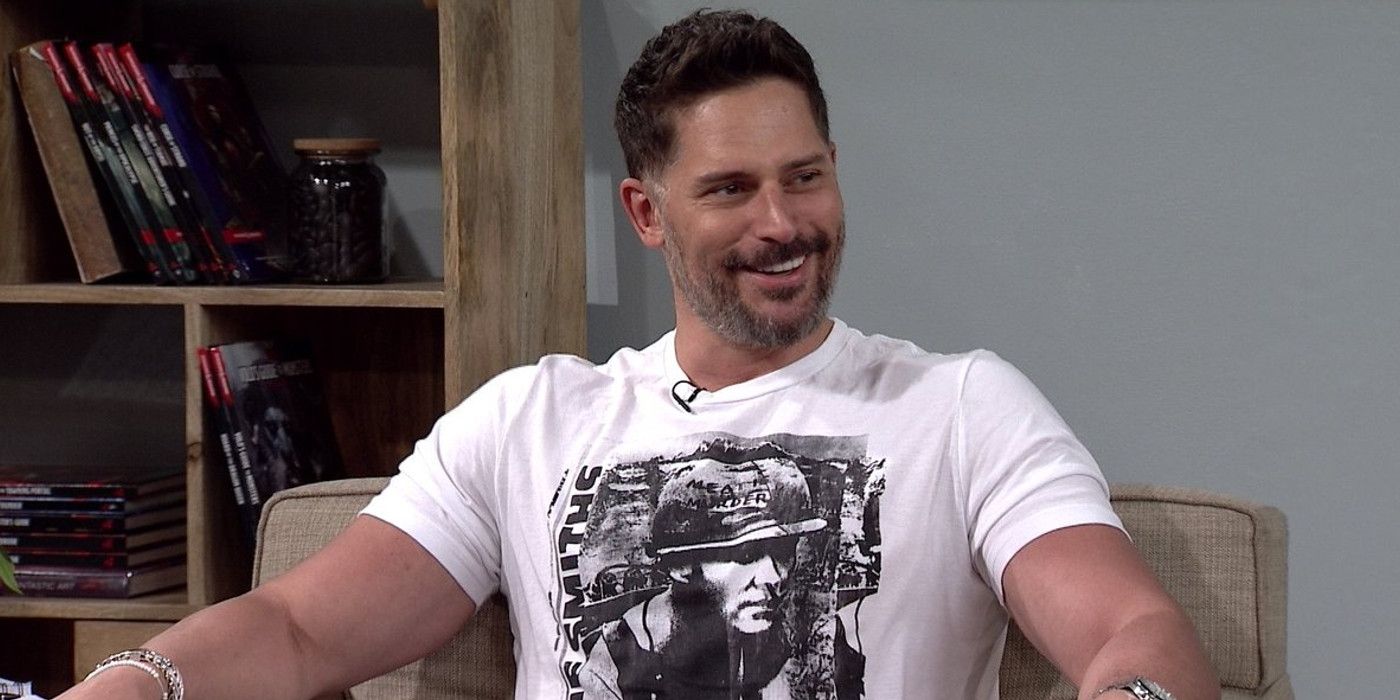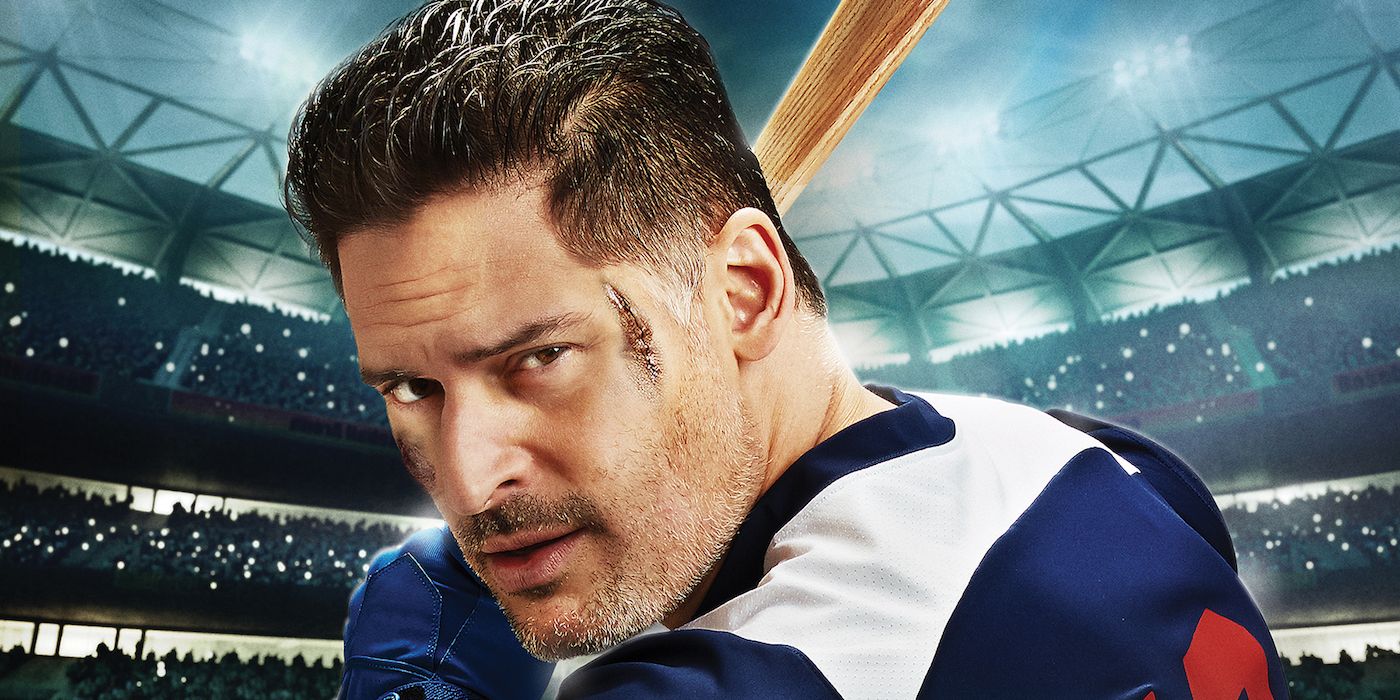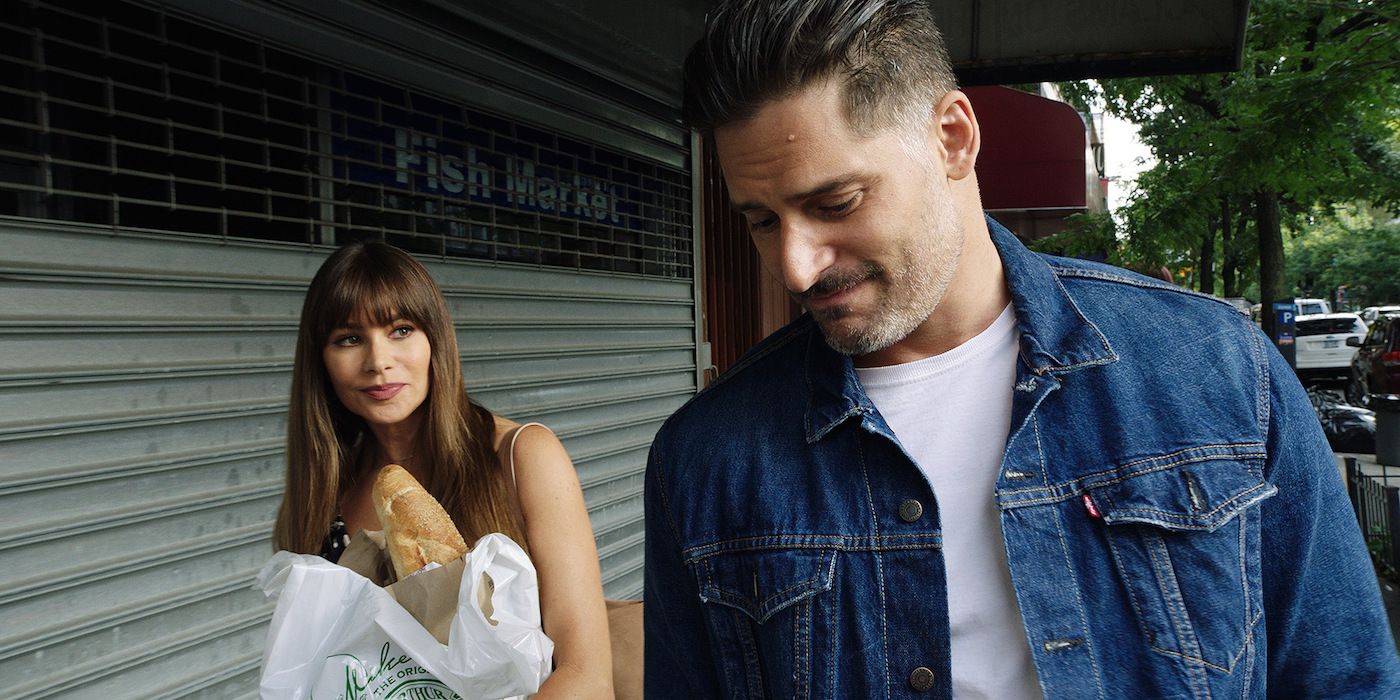This post contains SPOILERS for Bottom of the 9th
In Bottom of the 9th, Joe Manganiello bares his soul in an intimate drama about love, redemption, and baseball in New York City. This long-in-development indie flick follows a talented slugger who didn't lose his passion for the sport, even after spending nearly 20 years in prison for a terrible mistake. Set mainly in The Bronx and Staten Island, Bottom of the 9th was shot in iconic locations, but also intimate corners of the city only locals will fully appreciate. It's a deeply heartfelt and unflinchingly authentic portrayal of the city, as well as the dreams and difficulties faced by ex-cons who are forever defined by their single worst moment.
While promoting the DVD release of Bottom of the 9th, Joe Manganiello spoke to Screen Rant about the film. During the telephone interview, Manganiello discussed his love of sports films, the hardships he had to overcome to get the film off the ground, and the measures he took to make sure everything was just right. That included going the extra mile and spending his own money to secure the rights to a certain piece of music in a key scene. He opens up about writing scenes with legendary Giants pitcher Brian Wilson (not the Beach Boy), as well as his initial concerns regarding hiring his wife, Modern Family's Sofia Vergara, to play a role in the film.
In addition to Bottom of the 9th, Manganiello is also gearing up to show off his new line of Death Saves streetwear, inspired by the Netflix series, Dark Crystal: Age of Resistance. During the interview, Joe shares a jolly anecdote about his personal connection to the original film and why he's so proud to be attached to the series in this provocative new way. The collection is set to make its debut during a special presentation at New York Comic Con on October 5.
I was knocked out by your movie, Bottom of the 9th. I grew up in The Bronx, and I really appreciated how authentic this movie is to the New York City experience. I mean, you even correctly stated the number of stops on the Metro North between Grand Central and Ossining.
(Laughs) Yeah, that's right! I've seen a lot of movies where people get out of prison, but there aren't a lot of movies where someone gets out of prison and doesn't have someone there to pick them up. That wasn't in the original script. Originally, the character had a mom who picked him up, but then she disappeared from the story after that. I figured, we are either going to go one of two ways with this. We could develop the mom more. We can pretty much do an entire movie about this guy and his relationship with his mom after he gets out of prison. But that wouldn't work out, we had to get to the baseball. I thought his isolation was more important to the story. He's haunted by the memory of what he did. So I thought, let's rework the beginning and write the mom out and have him get out of prison in Ossining, and what happens when someone has nobody to pick him up. What I found out was, they're issued either a bus or a train ticket, and they have a box in their hand, and they go home. That's what he would do. He'd take the train back to his mother's apartment.
It's a really devastating opening. I think about myself, whenever I go away for any length of time, when I come back, I go see my mom. I can't imagine what it would be like if she wasn't there.
The guilt over missing the funeral was a much more interesting way to open the film.
He's a man without a safety net, which I think makes his story of trying sports that much more inspirational. We know people like Nelson Cruz, who is in his late 30s, and is still a heavy-hitting slugger. You mention on the DVD special features that baseball is the only sport where this situation, and where this character's story, is reasonably plausible.
Yeah, it's plausible. It's also a story where... We're not saying this guy comes back and becomes a Yankees sensation. He doesn't come back and teleport right back to where he was. He's almost 40 years old, and he's riding the bus to the minor leagues. It begs the questions, "What am I doing?" and "What am I going to be doing in the future?" Sometimes your life doesn't make sense on paper, but you know what the next right thing to do is. The voices that were pushing him back into baseball became too loud to ignore, and he knew it was the right thing to do. What he really wants out of life is to be a man, to be a provider, to have a family of his own. He meets Angela and he wants to be with her. But how is he going to make money? What is he going to do to be useful? What can possibly be in his future in baseball? But it's the right thing for him to do. As much as it doesn't make sense, he knows it's the right thing for him to do right now.
Right, exactly. Like in Rocky, obviously there's a bit of that pedigree in this movie, with the great Burt Young, but for Sonny Stano, baseball is what he does, it's the thing he can do, so why shouldn't he find a way he can do it?
Yeah, and just see where it goes. In the original script, there was a longer ending. Like, what happened after that game was in the script. But I didn't want to tell the audience what happens next. I wanted to leave them with what happened. What's going to happen next? The ending was complicated, in that he's beaten up like an alley cat, hits the ball in front of the scouts, and what's going to happen next? Would the Yankees ever call this guy up, take the chance on him? Or is this the equivalent of chopping down a tree in the middle of the forest when no one's around to hear the tree fall? In the original script, there were people, and there was cheering, and it was a packed stadium. I thought it would be more resonant as a regular minor league game. There's never a packed crowd. He does this for the love of the game. When he shows up to the game to play, he shows up for himself. It's not a big screaming championship game, it's not a playoff game. It's just a game. The scouts were going to be there, and that's his dream. And he has to get there, come hell or high water, to know, once and for all, to know if he was good enough.
Right, and what happens after that, you can fill in the blanks if you'd like, but it's not as important as his goal, which was simply to play the best he could. It's so good! How did you get Brian Wilson in there, and did he enjoy playing such an adversarial figure?
(Laughs) So, I had seen Brian Wilson on Lopez Tonight, right after the Giants won the World Series. He came out dressed as this old sailor man. He died his hair white and he wore a peacoat, hat, and a corn cob pipe. It was one of the funniest comedy routines I'd ever seen, and I thought, this guy has "it." I thought, this guy's a comic genius. That performance on George Lopez was f****** hilarious. I thought, someday, I'm going to use this guy for something. I directed a staged reading of Major League for Live Read, the Jason Reitman/Elvis Mitchell series at LACMA in L.A. They asked me if I wanted to direct one, I said sure, and so I directed Major League. I called Brian and got him to play "Wild Thing" Ricky Vaughn (the Charlie Sheen role) in my Major League. He was hilarious as Ricky, and I pulled him in. I told him, "I have this baseball script I'm producing, I'm going to star in it. Someday I'm gonna call you to play this pitcher." And he said, "Sure, call me."
And you did Major League back in 2015!
We were strapped for cash, being an independent film. It took me four years to get the financing. I eventually pitched at the AFM market, to get foreign investors. That's how we got the money to shoot the film. We were still in trouble, because they wanted to shoot this movie elsewhere. We were looking at all these locations other than the Bronx to shoot in because of financing, but we couldn't. We just couldn't. We had to shoot it in the Bronx. There was a guy who offered us a large sum of money if he could play my boss at the fish market. I thought, we can't have this guy who's not an actor, and who can't believably do a Bronx dialect. It needs to be a real neighborhood guy. And the other part of the deal was that his buddy needed to play the pitcher.
Oh boy.
And I wanted a real pitcher. I wanted Brian! And Brian helped me write the ending. The ending of the film was very different. I needed to rewrite it with Brian. But anyway, that's how it came about. I put my foot down. I said, "No. Nobody's going to be in this movie who isn't a great actor. Nobody is going to play the pitcher that isn't the right pitcher. We'll figure it out. We'll get the money to shoot in the Bronx, come hell or high water. We'll figure it out, but we won't cave and compromise the entire movie. And that's what happened. We didn't have money to fly Brian up. So I did a favor... I flew on the Virgin America flight from the mainland to Hawaii. In return, Richard Branson gave me a whole bunch of first class tickets, and I used those to fly Brian back and forth.
That's so amazing. I'm so fascinated by this type of passion project, something you made, your way, by any means necessary. Watching the movie, you can feel the soul coming out of it.
I appreciate that, man.
You're a big sports guy, I know you're a big Steelers fan, and you like rugby. What makes baseball special, and what are some of your earliest memories of this sport?
I'm a big fan of baseball films. I grew up with films like The Natural, Major League, Field of Dreams, Bull Durham. For me, those are the best sports films. You can throw Hoosiers and Rocky into that mix, as well, but I think there's really a magic around baseball films. There's an emotionalism about them. I don't know what it is about baseball movies that make men tear up, you know?
Absolutely.
I have very fond memories of seeing those movies in the theater, and watching them at home. I did grow up playing baseball, but I actually had my teeth knocked out, my front teeth knocked out by a baseball bat when I was younger, which caused, like, 30 years of teeth work, emergency root canals, all that mess. I played one more year, and that was it for baseball. I love getting to do movies that have me be athletic in whatever form, because it's me getting to fulfill this life that I didn't get to live. I wound up going to classical theater school instead of pursuing athletics. I was set up to play college basketball, I was going to go into criminal justice and work for the federal government. That was my plan, but I wound up going into the arts, and as a result, I didn't get to live that athlete's lifestyle. I got to vicariously do it through this role.
Kind of like in the movie, why not live out your dream, if you can, right?
Yeah, exactly, that's what acting is, for me. Getting to live all these different lives I didn't get to live, or can't live.
There are some shots in the movie of the pitcher, and it's shot in such a way where it's almost like you're inside his glove. I've never seen that before, and I don't know anything about pitching, but you can see the science behind it, more than science, the art, really, behind a pitch, and the relationship between the pitcher and the batter. Was that by design, or did it come about during the process?
That was one of the original elements written by Robert Bruzio in the original script. My character had kind of a special ability to read pitchers. I think that was very much served by Raymond De Felitta, the director, working with Barry Markowitz, our DP, who was absolutely... Barry's a mad genius when it comes to cinematography, shot selection, and telling the story. But I think we were also helped by Brian Wilson, having a real pitcher in there, walking us through the mechanics. Brian and I had a lot of talks about the script and what we were looking for in those moments. I think he just meticulously walked us through what it was like, especially in the final battle, that pitching battle between Brian and I. That came out of a series of conversations Brian and I had. I asked, what would be an ultimate pitcher's duel? How would we portray that? That was Brian. He walked us through, step by step, and he helped us point the magnifying glass at where we should look so we could walk the audience through the mechanics for the mental battle going on between these two veteran players. And God bless Brian for letting me hit home runs past him in sweat pants and a t-shirt. He's a very good sport, let me put it that way. That guy could... He's a world champion, one of the best pitchers ever.
Ha, I bet! It really is a battle, I've never seen it articulated like that. It's like a sword fight, almost.
Yeah, that's what we really wanted to go for.
A big part of this movie, especially behind the scenes, is that you co-star with your wife, Sofia, who is fantastic and we adore her so much.
We get along really well! There's something about a hot-blooded Sicilian Italian that gets along with Latin really well. (Laughs)
Did you have to convince her to star with you? Was there any fear it might be seen as a gimmick, or did you feel, since it was such a personal passion project for you, why not have your other greatest passion play a role in it?
I think you're right in the ballpark with your intuition.
Thank you!
We got together and decided we didn't want to work together. There had been so many vanity projects by couples... And we didn't want to do that. We didn't want to be accused of cashing in on our relationship. We didn't want to put our relationship on the chopping block. It wasn't about that. This film, for me, I was sitting with this film for several years before we got together. For me, it was about doing great work that mattered. For me, it was about putting together a team that was only concerned with doing that, with doing great work. And, you know, to make an independent film in today's climate, it's all about passion. You have to love it in order to put up with everything it takes to get it made. And so, when she was complaining that her agents at the time weren't finding her anything to do, film-wise, and she was getting frustrated. And I had this script that I thought would be great for her. I knew that she would be great for the part, and I thought the two of us would be great together, so I asked her to take a look at it, and if she responded to it, we could have a conversation. And she did respond to it. So then, knowing she was coming aboard, I took a pass at the script with her in mind. And I worked on our relationship together.
How did the story change after Sofia joined the film?
In the original script, Sonny and Angela get together very quickly. There are no real bumps in the road. As soon as they see each other, a scene later, they get together, or at least you really feel like they're gonna be together. I thought, no, it needs more bumps in the road. It needs to be more difficult for them. I really fought, having grown up as a product of divorce, seeing how that affects children, and watching my single mother struggle with allowing another man to come into the house after my father was gone. I think that was something I really felt compassion for. So, I took a pass on the script where I really wrote the struggle of a single mother dating again, and trying to decide if she wanted to bring a man around to her children. Especially in this case, I thought the emotional obstacle was, no matter how much she loved him when they were younger, he just got out of prison for beating a man to death. The fear, or the obstacle to me, was "can I bring him around my daughter?" And that's a very mature storyline. Furthermore, if that guy has any sort of moral compass or self awareness, he's going to understand what that means. He's going to be hesitant to do it because he doesn't know if he can trust himself. To me, that was Sonny's real inner struggle: can he trust himself? And does he deserve good things in his life? So that scene where they're in the diner, where Sonny voices his concern, he says, you're probably better off without me. These people see me as a murderer, and they're always going to see me that way. I don't want you and your daughter to have to deal with that. You can choose your way out of this. In fact, I'm going to choose out of it for you. I want something better for you than me." I wrote that scene with my mom in mind, but I also wrote it as a love letter for Sofia.
And I heard something about the music in that scene being an ordeal for you, right?
We're a low-budget film. Sometimes, music is difficult to get. You have to be very creative with music. Raymond, our director, had mock-edited that scene together for me to look at, and he edited it with that Flamingos song, I Only Have Eyes For You. When I saw it and heard the first notes of the song, it broke my heart. There was no way I couldn't have that music in that scene. That's me and my wife. We knew, going into the film, we were so passionate about it, nobody was going to accuse us of making a stupid vanity project. But with that said, I knew this movie was going to be us on film, it was going to last forever, and people were going to be watching it on film forever. As like, kind of like, I don't know, like a gift to my marriage, I went and I paid out of pocket for that song. I wanted to have this amazing piece of music under this vulnerable scene between the two of us. It was about nothing more than the two of us getting to do amazing work together. So, yeah, I spent the extra money.
That's amazing, man.
We shared a hotel room in New York, which was such an amazing experience for us. Through the whole shoot, the two of us lived in this hotel room. She was in the other room, reading a book, and I was in the other room writing that scene for us. I knocked on the door, I came in, and we sat on chairs in the bedroom and we read the scene together. I thought, okay, that's it, it's going to work. We came in, later that week, and we filmed the scene together, and it was magical.
You're going to be at New York Comic Con, right?
I'm at New York Comic Con, yes. My streetwear line, Death Saves, we're going to launch our Dark Crystal collection. We're collaborating with Dark Crystal and Netflix. We're going to be launching this capsule collection for Dark Crystal: Age of Resistance, which is a f****** dream come true for me. My fourth and fifth birthday parties as a little kid were to see Dark Crystal in theaters, and then a year later, when I was five, to see the re-release in theaters. For me, almost 40 years later, to be able to play in that sandbox and create streetwear, and wearable art for people who are fans like me, and for the new generation, it's mind-blowing.
Bottom of the 9th is out of DVD, Digital, and On Demand now.

